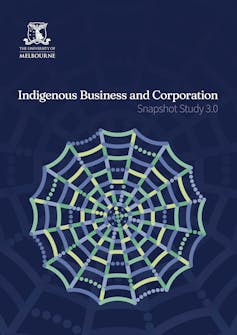Indigenous businesses are worth billions but we don’t know enough about them
- Written by Michelle Evans, Associate Professor, The University of Melbourne

Indigenous businesses generate about A$16 billion[1] a year in revenue and employ more than 116,000 people – almost as many as the massive Coles retail group.
But the contribution of these businesses to the Australian economy has long been underestimated.
This is despite Indigenous businesses delivering, among other things, important culturally sensitive health and education assistance in remote areas, professional and technical services to the mining industry and cultural training to corporations and government.
While all this work creates income and promotes economic self-determination for business owners and their employees, much of it is done out of sight without being properly identified in government statistics.














